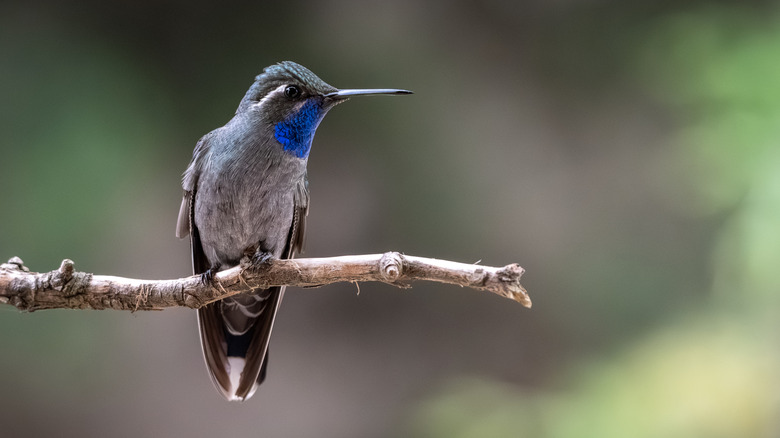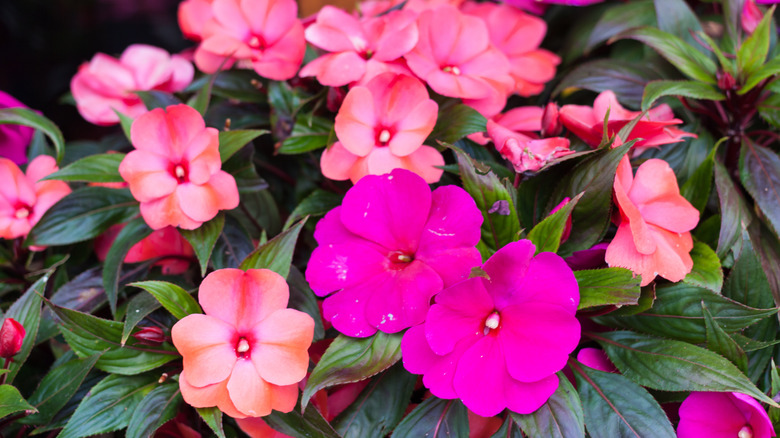The Garden Duo You Can Plant In November To Attract Hummingbirds
If you live in a hot region of the U.S., it's not too late in the year to establish new plants outdoors. Wondering which plants you can grow to attract hummingbirds to your garden during winter? This underrated duo is one solid option: impatiens (Impatiens walleriana), a gorgeous flowering plant, and basil (Ocimum basilicum), the iconic herb. Both of these plants have their own appeal — impatiens boast bright-colored, nectar-rich flowers; basil is an easy-to-grow herb that's always helpful to have on hand if you like to cook — but when grown together? They'll make your garden containers doubly irresistible to hummingbirds.
Native to Africa, impatiens are usually grown in the U.S. as annuals. That said, they fare well as perennials in USDA Hardiness Zones 10 and 11, where the ground never frosts over. In these parts of the country, specifically, they can be planted in November. Basil can work as a tender perennial in the same warm weather conditions or as an annual in cooler zones. Here's everything you need to know to grow these two plants successfully in late fall.
Here's how to grow impatiens & basil together in outdoor containers
Impatiens and basil make good companion plants for many reasons. They're both magnets for hummingbirds, who enjoy drinking from their blooms. Basil is an herb that's a natural pest deterrent, which is great news for impatiens since these flowers can attract aphids, spider mites, and other common garden pests. Planting them in close proximity will heighten your garden's appeal for hummingbirds and keep your impatiens healthy.
When growing this duo outdoors, you'll need to factor in their respective care needs. Impatiens prefer shade; basil needs ample sunlight. As a compromise, you could grow them side by side in a spot with dappled shade. Both plants thrive in containers, which show off impatiens' pretty blooms and promote better drainage for basil. Growing them this way will also allow you to easily move them indoors if it gets cold outside overnight. Shelter from cold weather is vital for this duo, and even more so if you're attempting to grow either one from seed in November — they both need consistent heat and a soil temperature around 70 degrees Fahrenheit to germinate. You could also repot starter impatiens and basil plants into larger containers. (Just avoid overwatering your nascent basil plant. It's a mistake everyone makes when growing this herb.)
Known for its long-lasting blooms, Thai basil (Ocimum basilicum 'Siam Queen') is a great variety to grow to attract hummingbirds. Be sure to let your basil plant flower before you harvest any of its leaves, since its blooms are what draw in hummingbirds. You'll give yourself a leg up by pairing basil with hybrid impatiens varieties, such as 'SunPations' Impatiens x hybrida, which are more sun-tolerant.

